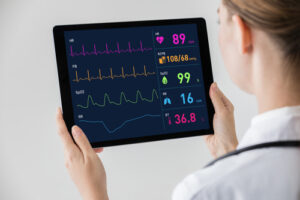
U.S. Rep. Troy Balderson (R-OH) recently sponsored legislation to ensure Americans have expanded access to Medicare-covered remote monitoring services.
“We should be doing everything we can to improve access to healthcare services for seniors,” Rep. Balderson said. “Remote monitoring is a valuable tool for patients across Ohio, especially for those who live in rural communities with few healthcare facilities in their area.”
Rep. Balderson on Sept. 12 introduced the bipartisan Expanding Remote Monitoring Access Act, H.R. 5394, alongside three original cosponsors, including lead original cosponsor U.S. Rep. Katie Porter (D-CA).
“I am proud to introduce the Expanding Remote Monitoring Access Act because it will lower costs while improving health outcomes,” said Rep. Balderson.
If enacted, H.R. 5394 would extend for two years the two-day billing threshold set by the Centers for Medicare and Medicaid Services (CMS), according to a bill summary provided by the congressman’s staff.
Additionally, the bill would require the U.S. Department of Health and Human Services (HHS) to submit a report to Congress within one year analyzing a long-term CMS billing threshold and providing a savings estimate from earlier interventions and fewer days of hospitalizations. The report would inform HHS recommendations for multiple billing thresholds and any new remote monitoring code durations, the summary says.
The bill also would require the HHS Secretary to consult with providers, patient groups, technology and device manufacturers, and others to understand the remote monitoring experience from all perspectives, states the summary.
“Too many patients struggle to get consistent or follow-up care, especially those in rural communities or families without stable transportation options,” said Rep. Porter. “By making it easier for Americans on Medicare to get remote monitoring services, we are lowering costs and expanding care options — a win for patients and taxpayers.”
The American Telemedicine Association’s ATA Action, the Health Innovation Alliance, Teladoc Health, OhioHealth, the National Association of Rural Health Clinics, the American Heart Association, and the Medical Device Manufacturers Association, among others, endorsed the legislation.



